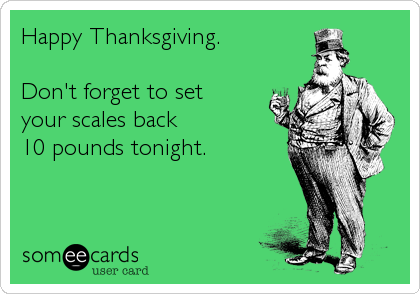The 38-year-old former CEO of Carlisle Development Group apologized on Wednesday to a federal judge for his wrongdoing and for “casting a cloud” over an affordable-housing industry whose mission is to build homes for society’s most needy.
“It pains me very deeply,” Greer, 38, said, choking up during his statement to the judge.
Yet his high-profile defense attorney, Roy Black, argued that Greer deserved no prison time because he pleaded guilty, cooperated with authorities, paid back the stolen money and has devoted his life to charity — including his latest effort to help a nonprofit group develop an Overtown housing complex for homeless mothers and their children.
Black touted the South Florida housing projects built by Carlisle with tax credits issued by the U.S. government, while downplaying that Greer and others involved in his partnerships inflated the constructions costs so they could split millions in illegal profits.
“I think the public got what they paid for,” Black told U.S. District Judge Ursula Ungaro. “They were not cheated.”
***
Prosecutor Michael Sherwin hammered that point, saying Greer was driven by “greed,” not charity, and that he “lost his way.”
“This was a lie for money,” Sherwin said.
The federal sentencing guidelines for Greer’s offense range from eight to ten years in the $34 million housing fraud probe that disgraced the one-time CEO and his Miami-based company, Carlisle, which was started by his father, lawyer Bruce Greer, two decades ago. Bruce Greer and his wife, Evelyn, a lawyer who once served as mayor of Pinecrest and on the Miami-Dade school board, attended the hearing.
On Wednesday, the prosecutor recommended that the judge start at eight years and then reduce it by 40 percent for Greer’s assistance in the long-running FBI and IRS investigation — for a total sentence of about five years.
Ungaro said she would issue her decision on Greer’s sentence along with punishment for five other co-defendants on Monday, after hearing arguments from defense attorneys and prosecutors.

The SDFLA Blog is dedicated to providing news and notes regarding federal practice in the Southern District of Florida. The New Times calls the blog "the definitive source on South Florida's federal court system." All tips on court happenings are welcome and will remain anonymous. Please email David Markus at dmarkus@markuslaw.com
Wednesday, November 30, 2016
Judge Ungaro hears sentencing arguments in Matthew Greer's case
It's Michael Sherwin and Michael Berger for the government. And for Greer, it's Roy Black, Hy Shapiro, and Jackie Perczek. Really great lawyering all around. Jay Weaver from the Herald is covering the sentencing:
Tuesday, November 29, 2016
Argument transcript in Beckles...
...is here.
And the Supreme Court decided a double jeopardy case this morning, Bravo-Fernandez:
And the Supreme Court decided a double jeopardy case this morning, Bravo-Fernandez:
The issue-preclusion component of the Double Jeopardy Clause does not bar the Government from retrying defendants, like petitioners, after a jury has returned irreconcilably inconsistent verdicts of conviction and acquittal and the convictions are later vacated for legal error unrelated to the inconsistency.
Monday, November 28, 2016
Welcome back
The Supreme Court is back in full swing, and AFPD Janice Bergman has a big argument this morning in Beckles v. United States. From SCOTUSblog:
Issue: (1) Whether Johnson v. United States applies retroactively to collateral cases challenging federal sentences enhanced under the residual clause in United States Sentencing Guidelines (U.S.S.G.) § 4B1.2(a)(2) (defining “crime of violence”); (2) whether Johnson's constitutional holding applies to the residual clause in U.S.S.G. § 4B1.2(a)(2), thereby rendering challenges to sentences enhanced under it cognizable on collateral review; and (3) whether mere possession of a sawed-off shotgun, an offense listed as a “crime of violence” only in commentary to U.S.S.G. § 4B1.2, remains a “crime of violence” after Johnson.This will be interesting for 11th Circuit watchers because this issue has deeply divided the court. Good luck Janice!
Argument preview: Court to tackle constitutionality of residual clause in sentencing guidelines
Wednesday, November 23, 2016
Tuesday, November 22, 2016
If felony-battery in Florida a crime of violence under 2L1.2 of the Sentencing Guidelines?
That's the question the en banc 11th Circuit will take up in U.S. v. Vail-Bailon. Here's the panel decision by Judge Rosenbaum saying it is not a crime of violence:
Judge Jordan concurred, and visiting Judge Siler dissented.
The en banc order is here.
When I was growing up, my parents told me not to judge a book by its
cover. The Supreme Court has expressed an analogous concern about concluding
that a crime qualifies as a violent crime under the Armed Career Criminal Act
(“ACCA”), based solely on the name of the crime. See Johnson v. United States,
___ U.S. ___, 135 S. Ct. 2551, 2560 (2015) (discussing whether Connecticut’s
offense of “rioting at a correctional institution,” a crime that the Supreme Court
characterized as “certainly sound[ing] like a violent felony,” qualifies as a violent
felony under the residual clause of the ACCA).1
This case raises the question of whether the Florida crime of felony
battery—a crime that, from its name, may sound like a crime of violence—actually
satisfies the definition of “crime of violence” under §2L1.2 of the Sentencing
Guidelines when it is committed by mere touching. Heeding the Supreme Court’s
warning, we have carefully compared the elements of felony battery under Florida
law to the “elements clause” of § 2L1.2’s definition of “crime of violence.” Based
on our review, we now hold that felony battery under Fla. Stat. § 784.041 does not
qualify as a “crime of violence” under § 2L1.2 when it is committed by mere
touching. For this reason, we vacate Vail-Bailon’s sentence and remand for resentencing.
Judge Jordan concurred, and visiting Judge Siler dissented.
The en banc order is here.
Subscribe to:
Posts (Atom)
